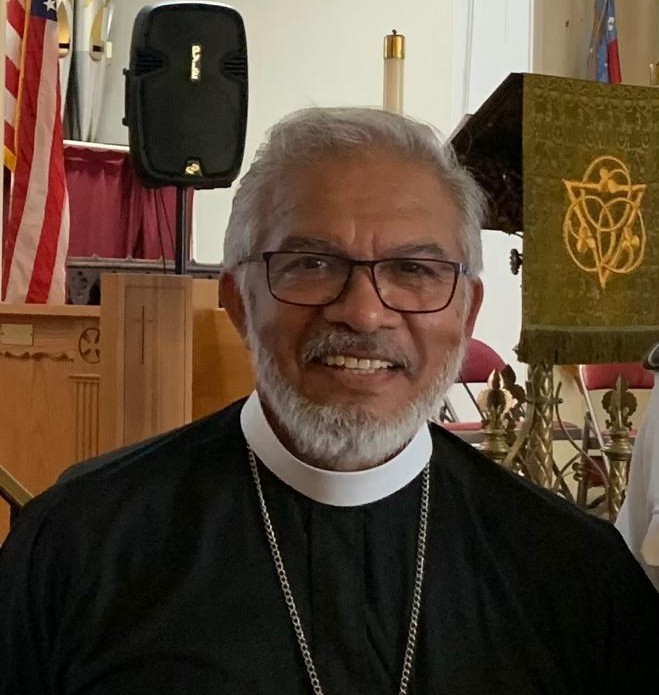
Sueño americano
“Migrating Is Not a Crime, It Is an Act of Survival”
Reverend Rigoberto Ávila-Nativi, Church of the Good Shepherd in Newburgh
Por Andrés Pérez Rangel
August 2025 Honduran Reverend Rigoberto Ávila-Nativi is the Episcopal pastor of the Church of the Good Shepherd in Newburgh. He says he rose to his position inspired by a strong desire to open new doors for local Hispanics and to make the Episcopal Christian faith accessible to Spanish speakers. With his Spanish-language masses and bilingual community events and services, Ávila-Nativi emphasizes the church’s need to support the community beyond language barriers. The Church of the Good Shepherd, located at 271 Broadway, Newburgh, has a traditional decoration without ostentatious aspirations, creating a homely and inviting atmosphere. In this interview, the pastor speaks about his arrival in the United States and his rise in the ecclesiastical world.Why did you leave Honduras, and how was your arrival in the United States?
I left Honduras in 1984 for political reasons. A relative was disappeared due to their participation in social movements, which forced us to leave the country. I arrived with a small bag in my hand, never imagining I would stay for life. At first, I worked in a factory earning minimum wage. It wasn’t easy—the language, the culture, and racism hit me hard—but I found support in communities such as the Puerto Rican one, which extended a helping hand.
How did you find your path to religious ministry?
I already had social awareness from a young age. Here, through solidarity movements, I met pastors who invited me to seminary. I fell in love with theology and continued studying. I attended Empire State College and then seminary until I was ordained as a priest. It was a long and difficult process—16 years—but I knew I had to open doors for others. I was received in April 1990 and I am the first Honduran to be ordained in the diocese, which carries great responsibility.
What obstacles did you face as an immigrant and religious leader?
In addition to legal and academic barriers, I faced racism both inside and outside the church. Many companions abandoned the path because the process was so long. I kept going, convinced that change must come from within. I also had to rethink issues such as LGBT inclusion from a faith perspective. It has been a process of spiritual and human transformation. Nothing has been easy, but everything has been worth it.
What is the Latino community in your church like?
The community here is very diverse: there are Hondurans, Garifunas, Caribbeans, Central Americans. But we face similar challenges. My dream has always been that our church is not a borrowed space but truly ours. That is why we work so everyone feels part of it—with a voice, with power, with dignity. We especially support those who are undocumented. Everyone has the right to migrate and live with dignity. Migrating is not a crime; it is an act of survival.
What does your church do to support immigrants?
Our church has declared itself a sanctuary. We do not demand tithes or memberships; the person’s need comes first. We help those without papers, connect them with legal services, and provide space for farewells, baptisms, and celebrations without bureaucracy. We have formed a testimonial team so that the English-speaking community can also become involved in defending Latinos. We want our church to be a true community of transformation—not just a temple, but a home.
Community Services
The Church of the Good Shepherd in Newburgh, located at 271 Broadway, offers free weekly meals on Saturdays and Sundays (salads, sandwiches, hot dishes), a community closet (clothing, coats, holiday bags), and Spanish-language religious services. They also assist vulnerable individuals, coordinate donations, and have volunteers, including West Point cadets. For more information, visit their website at: shorturl.at/LCCBm.
La Voz, Cultura y noticias hispanas del Valle de Hudson
Comments | |
| Sorry, there are no comments at this time. |

